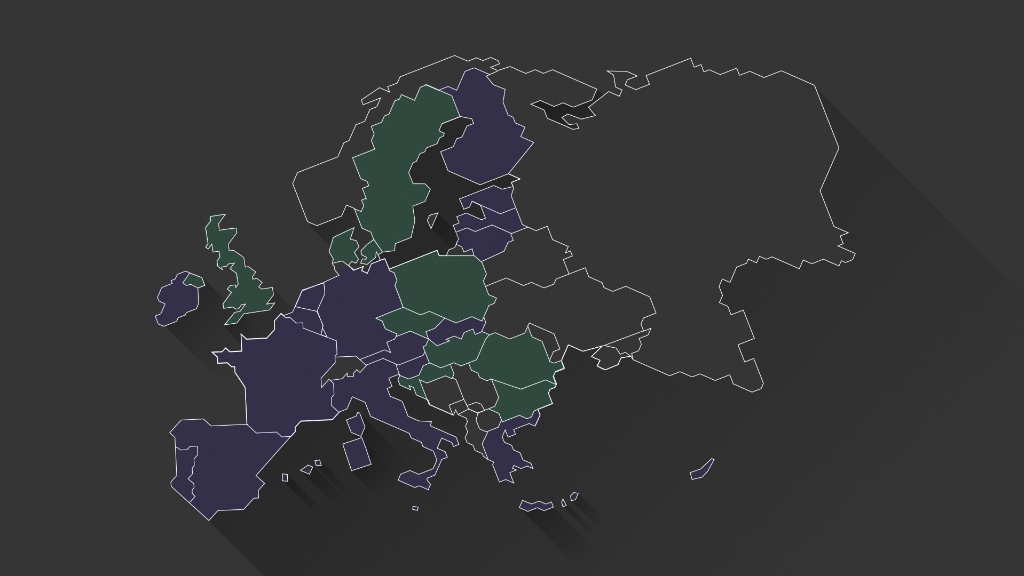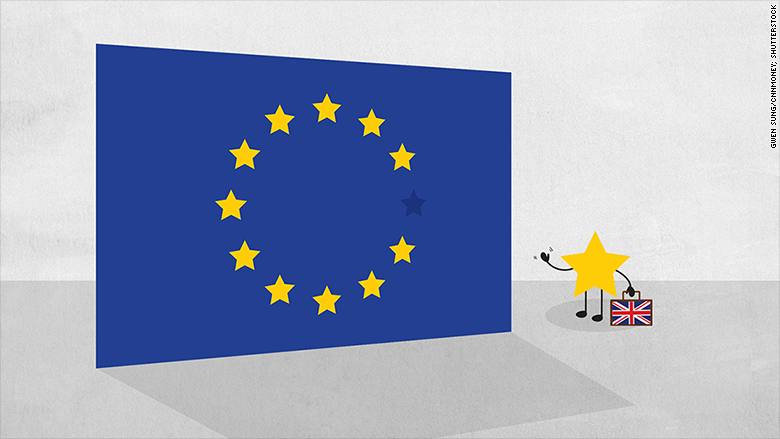
Britain's future in the European Union looks a little more shaky after a political earthquake weakened the ranks of its defenders.
The main opposition Labour Party on Saturday elected a left-wing leader who is ambiguous about whether Britain should remain part of the world's biggest single market.
That means the government, and its main rival, are both now deeply divided over the question, and therefore less able to mount an effective campaign in favor of continued membership. A national vote will be held by 2017.
Top business leaders have already warned of the potential damage that would be caused by Britain walking away from Europe -- the so-called "Brexit."
Unlike predecessors such as former Prime Minister Tony Blair, new Labour leader Jeremy Corbyn has long been an opponent of the EU.
"Corbyn's victory is a wild card in terms of the EU referendum," said Pawel Swidlicki, a policy analyst at Open Europe.
When Britons last had a chance to have their say on EU membership 40 years ago, Corbyn voted against. He's been vague on how he would vote this time.
"Corbyn is perceived as anti-business, anti-NATO and anti-Europe," said Kit Juckes, strategist at Societe General in London. "It does mean the case against 'Brexit' will be made less forcefully than would otherwise be the case."

Related: The pros and cons of 'Brexit'
Cracks are already showing within the Labour Party. Its spokesman on business, Chuka Umunna, resigned his post less than 48 hours after Corbyn's election.
"It is my view that we should support the UK remaining a member of the EU... [He] has made it clear to me that he does not wholeheartedly share this view," Umunna said in a statement.
Corbyn sent another strong signal by appointing a radical left-wing politician to speak for the party on finance.
John McDonnell has spoken in the past of the need to hike corporate taxes and nationalize banks, and has previously listed "generally fermenting the overthrow of capitalism" among his hobbies.
Prime Minister David Cameron has already announced he will campaign for Britain to stay within the union, once he has renegotiated the terms of membership.
Cameron was hoping other parties would campaign with him, in an initiative similar to the effort made to persuade Scotland not to break away from the UK last year.
But the election of a new radical opposition leader could hamper any attempt to build a pro-European consensus.
"There will be a lot of pressure not to "support Cameron," said Simon Hix, professor of government at the London School of Economics. "If that happens, many pro-EU Labour supporters might stay home."


